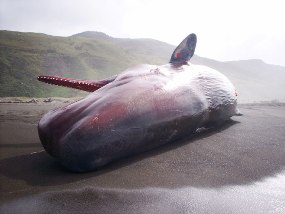Then she gets you on her wavelength and she lets the river answer

Humans are dumping more plastic than ever, but not all of it is accumulating in the garbage patches of the Atlantic as expected, scientists reported.
Of the millions of metric tons of plastic produced annually, an enormous proportion ends up as tiny debris in the open ocean. The currents loosely gather it together in vast, swirling ‘garbage patches’ near the surface.
But the amount of floating plastic accumulating in the Atlantic Ocean has remained curiously static over the last two decades, in spite of the fact that plastic waste by humans has increased significantly over the same timeframe, according to a new study published in the journal Science.
“Surprisingly, over the 22-year period of the study (1986-2008) we did not observe an increase in the amount of plastic floating in the western Atlantic in the region where it is most highly concentrated,” said Kara Lavender Law of the Sea Education Association and lead author of the study.
Plastic debris has been accumulating in the world’s oceans for decades, but until recently we have had only a peripheral understanding of its extent.
A major pollutant, plastics have far reaching environmental impacts in the ocean, including entanglement of marine fauna, particle ingestion by seabirds and other organisms, dispersal of invasive species to non-native waters and the transport of organic contaminants.
The researchers discovered that while highest concentrations of plastic debris occurred in an area where ocean-surface currents converge - the North Atlantic Subtropical Gyre - over the last two decades there has not been a substantial increase in the overall amount. (…)
Marine scientist Richard Thompson of the University of Plymouth warns that “while the study clearly shows no consistent trend in the abundance of debris in the North Atlantic subtropical Gyre we should not extrapolate this to other regions. Over the same time period there are reports of plastic accumulating in remote regions including the Antarctic and in substantial quantities in the deep sea.”
photo { 3-ton whale died in Malaysia after ingesting a plastic bag, a rope and a bottle cap. }


